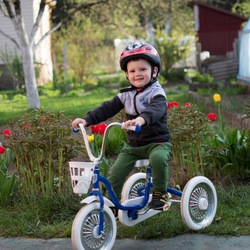How to choose a school for a child
 Deciding on a place to study for your favorite first grader is not an easy task. But completely solvable, if you find out in advance the list of your requirements. The purpose of this article is to tell parents how to choose a school for a child.
Deciding on a place to study for your favorite first grader is not an easy task. But completely solvable, if you find out in advance the list of your requirements. The purpose of this article is to tell parents how to choose a school for a child.
An ideal school – what is it like?
Each parent in the concept of “good school” sees his: someone is an ordinary school near the house, which they themselves have completed, and someone wants to give his child to a prestigious educational institution with in-depth study of subjects, a pool and good technical equipment. Someone thinks that the best school is where it is psychologically comfortable and there is an individual approach to each student, and someone likes strict discipline and standard presentation of the material.
So that your child and you will be calm and comfortable for the next ten years or more, you need to pay attention to the following points when choosing a school.
1. Reviews
You can refer to the formal criteria, and see the rating of the school for VNO, find out how the school is technically equipped. Of course, this is not at all indicative of the high level of education of all students, just as the teacher’s achievements cannot be an indicator of his human qualities. Therefore, the parents and the students themselves, who study in the school that interests you, can tell more about the school and the teachers.
2. Location
For younger students, the most favorable option is when the school is close to home. If this is not the case, and you do not have a private car, then find out how convenient it is to get to school by public transport, and carefully examine all the way to school for safety.
It is more convenient to live with classmates – the way to and from school will be more fun, you can go to mugs, do homework and walk together.
3. Curriculum
It is necessary to ask how the educational process is organized. How many lessons a day, the availability of shifts, whether the first-graders give homework, whether there are additional classes and electives – these and other questions are very important for a small student who just came to school. After all, often schools that position themselves as “promising” give a very large load, and it can be unbearable for children, especially those who are weak or have chronic diseases.
School programs can be different. Today, school education is being reformed, schools have the opportunity to independently form educational programs and choose teaching methods. Schools may have specialization – artistic and aesthetic, sports, languages, mathematics, humanities, etc.
4. Extended Day Group
For working parents, “after-meal” is a way out; there a student can have lunch, learn lessons, attend school electives, clubs and sections.
5. Number of students in class
This will be especially important for home children and children requiring special attention for health reasons.
6. Financial side
Schools with paid education usually have a website where the cost of education is stated. You can also find out from the school administration. But public schools, although they are considered free, in fact sometimes require no less financial expenditures. These are so-called parental charitable contributions, the amount of which, like other details, can be obtained from parents whose children attend the school you are interested in.
7. School grounds
Pay attention to the cleanliness and autonomy of the school school site. The presence of a stadium, sports equipment, a large area for events will be an advantage.
8. “School spirit”
The atmosphere prevailing in school is an important criterion for choosing an educational institution for a first-grader. Try to observe what is happening at school change, how students behave and how they communicate with each other, what the teachers are doing, find out where the lower grades are located – whether they are separated from high school, how they are decorated and equipped.
9. Power
The presence of a school canteen with the presence of hot dishes will be a great advantage compared to the buffet, where you can buy only dry snacks. Ask the administration and schoolchildren for their diet, and, if possible, check out the school cafeteria to get an idea of the quality of the food offered.
10. Security
Practically all current schools have a security guard, but the security issue is worth studying in more detail. Find out what are the functions of the guard and the system of passing unauthorized persons and exiting students from the school building.
11. Pedagogical composition
Many will agree with the opinion that the main thing for a first-grader is not so much the school, but the first teacher. How well the teacher is able to get along with the children will determine the attitude of your student. A friendly atmosphere with the observance of discipline in the lesson and adequate presentation of the material are the moments that will make the learning process productive and enjoyable.
If your child is emotionally stable, easily makes friends and adapts to a new environment, he will quickly get used to any school.



